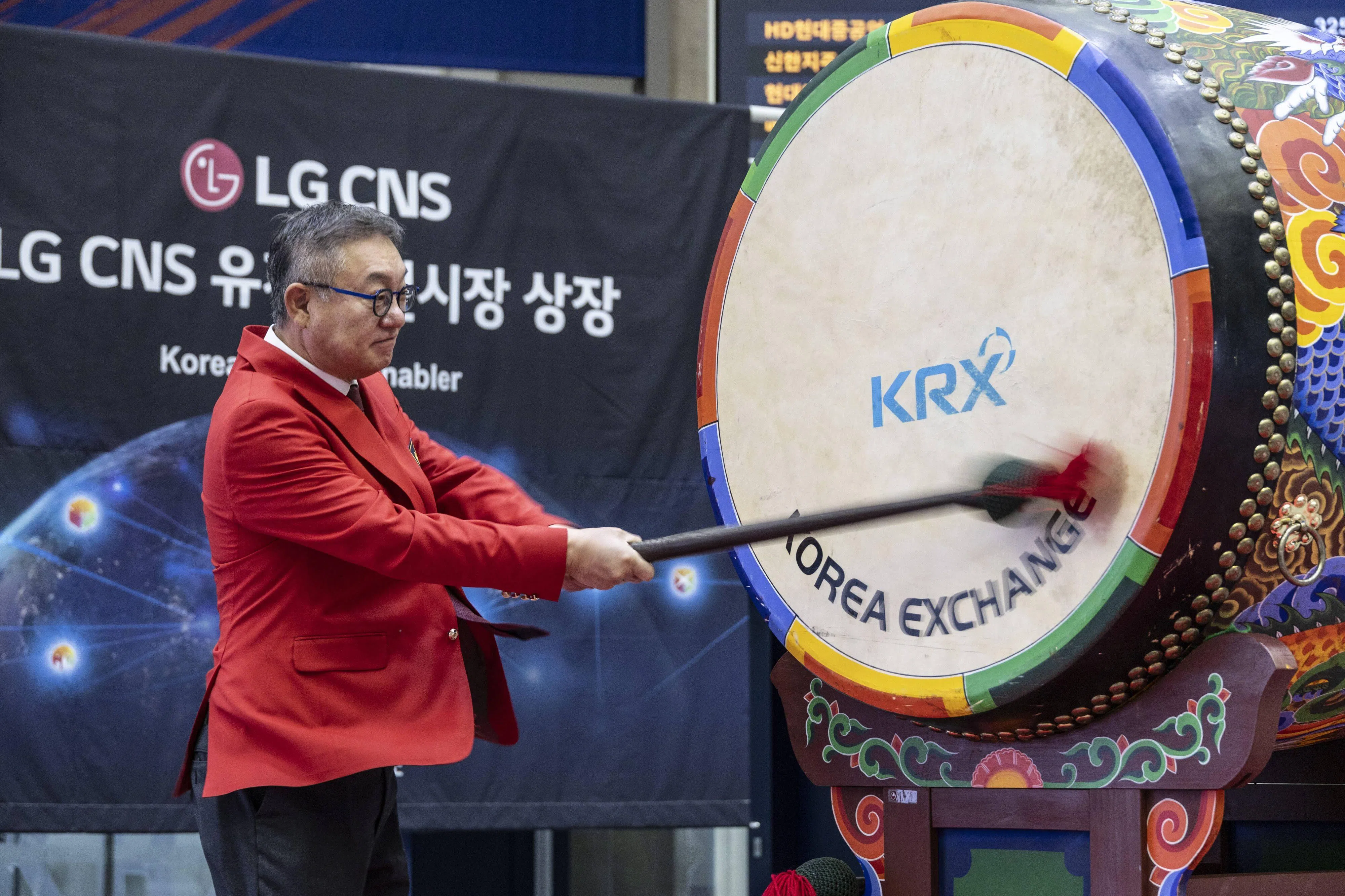SOUTH Korea’s biggest new listing in more than two years got off to weak start as LG CNS fell on its Seoul trading debut after a 1.2 trillion won (S$934 million) initial public offering.
Shares of the diversified technology-services unit of LG Group sank as much as 11.3 per cent on the main Kospi market on Wednesday (Feb 5) before ending down 9.9 per cent at 55,800 won. That is a contrast to the IPO, when the stock was priced at 61,900 won each, the top of the marketed range, after it was snapped up by local investors. The broader Kospi index rose 1.1 per cent.
The debut indicates investors are becoming increasingly sceptical about IPOs being a surefire way to make money in Seoul. Though first-day pops have been common for Korean listings, the overwhelming majority of them have soured in the past three months and are now below their IPO prices, according to data compiled by Bloomberg.
“IPO stocks have been bad lately,” said Kim Dojoon, chief executive and investment officer at Seoul-based Zian Investment Management. “We probably need some traffic control as the IPO market has gotten a little overheated.”
Out of the 35 companies that went public in Korea in the past three months, only about a quarter of them are trading above their IPO price, according to data compiled by Bloomberg.
SK Innovation’s lubricant’s unit SK Enmove aims to list in June or July, Maeil Business Newspaper reported on Wednesday. To encourage long-term investment, South Korean authorities announced plans to reform the IPO market last month.
Some investors expected that the LG unit, which competes with the likes of Samsung SDS, could be supported by a recovery in Korean stocks. The market slumped in December amid political turmoil but rebounded in January as stability returned. The recovery helped LG and a private equity fund of Macquarie Group, which bought a 35 per cent stake in LG CNS in 2020, to price the shares at the top of the offered range during the IPO.
The demand during the IPO, Korea’s largest since that of affiliate LG Energy Solution in 2022, may have been driven by the hope that the company could be a beneficiary of the artificial intelligence boom. Though many of LG CNS’s operations are established businesses such as helping set up back-end software services for companies, its executives have pledged to develop futuristic robotics technology and generative AI, launching a new team to lead the firm’s AI and cloud businesses to serve enterprise clients.
But to Park Jinho, head of equity investment at NH-Amundi Asset Management, LG CNS did not look particularly cheap, given that shares of rival Samsung SDS slumped 25 per cent last year. He also blamed a lack of liquidity in the Korean market for LG CNS’s lacklustre debut. BLOOMBERG



